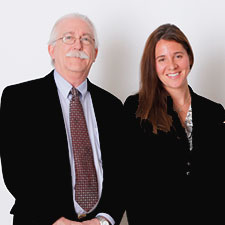
Patients who are referred here for neurosurgery are often a bit confused when they’re scheduled for time with a neuropsychologist before or after surgery. What does a psychologist have to do with neurosurgery, anyway?
Unlike more typical psychology, which focuses on behavior and mental health, neuropsychology is the study of the anatomy and functioning of the brain, especially in its role in cognition, behavior, and psychological processes. Neuropsychologists specialize in the diagnosis and treatment of the neurocognitive and behavioral effects of neurological disorders. That’s why neuropsychology is an important element in the practice of neurosurgery, especially when surgical procedures involve the brain.
There are two types of neuropsychologists. The first conducts assessments and evaluations, and the other provides cognitive remediation and addresses the emotional aspects of a neurosurgical condition.
The first kind of neuropsychologist might evaluate a patient before brain surgery to assess cognitive functioning through tests that measure memory, attention, language, sensorimotor ability, and visual and spatial skills. Those tests also look at what are called “executive functions” — planning, organizing, problem solving, self-monitoring, and other high-level cognitive abilities. These evaluations can help identify what parts of the brain might be damaged or working inefficiently. What we find helps determine a patient’s candidacy for several types of surgery, such as Deep Brain Stimulation for Parkinson’s disease and surgery to remove the focus that causes some types of epilepsy.
These neuropsychologists also work closely with neurosurgeons before some brain surgeries to localize functions more precisely. For example, you may have heard that one side of the brain always controls language or that there are areas specific for speaking or understanding—but that’s not true. Speech and language centers vary by individual, so a neuropsychologist may test a patient to identify that location before a surgery that might damage it. If a brain tumor or seizure focus is near “eloquent cortex” – an area controlling a function such as language – the neuropsychologist works with the neurosurgeon to map out exactly where those functions are (often within one centimeter). Once that eloquent cortex is localized, a nearby damaged part of the brain can be removed safely without causing impairment in a specific function.
Despite these precautionary measures, some patients do experience cognitive, behavioral, or psychological consequences of brain surgery. That’s where the other type of neuropsychologist comes in. Neuropsychology specialists with advanced training in post-surgical care are uniquely equipped to assess the impact of surgery, ensure continuity of care, and maximize quality of life. These neuropsychologists specialize in treating cognitive or behavioral dysfunction through cognitive remediation: they teach compensatory strategies and assign tasks that exercise and improve a variety of cognitive functions. They also address the emotional impact of surgery and with the inevitable psychosocial issues that accompany major changes in one’s life or abilities.
For example, one patient who had suffered an intracranial hemorrhage on the left side of her brain experienced difficulty with word retrieval, attention, and short-term memory. Understandably, she also felt a profound sense of loss about it and experienced changes in her sense of self, resulting in a depressed mood. Her neurosurgeon referred her for neuropsychological testing to determine the degree of impairment; based on the results of that testing she was referred for cognitive remediation and cognitive behavioral therapy. Today she’s back at work, using her new compensatory strategies to improve her abilities, her mood, and her quality of life.
That’s why it’s no surprise to find neuropsychologists working in a neurosurgery department. We are part of a closely knit interdisciplinary team that works with patients before, during, and after neurosurgery to maximize their potential.
More about Neuropsychology in Neurological Surgery